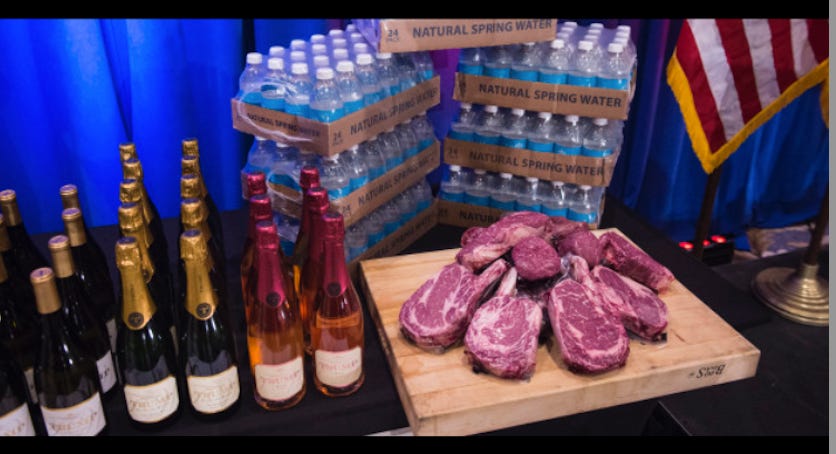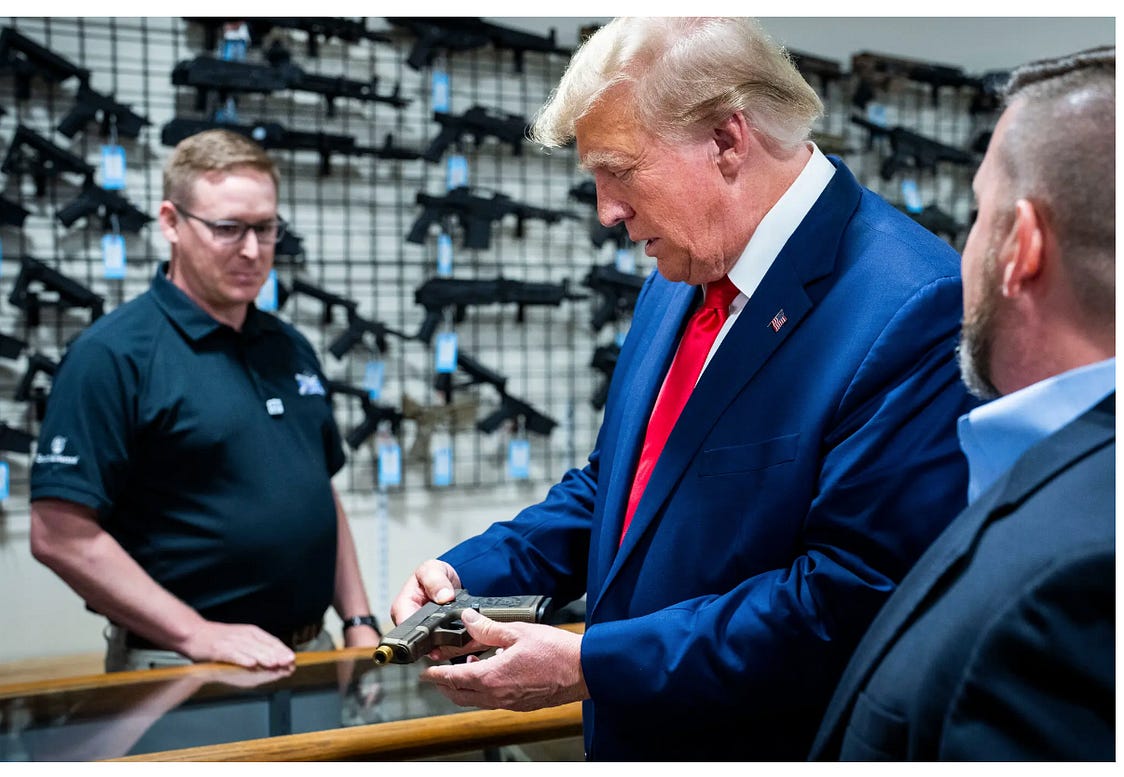An essay by Ruth Ben-Ghiat
This Substack post on Lucid struck me as spot on, not only in its encapsulation of Trump but also of what the national and local Republican Party has become under Trump’s grip and by his example.
In former State Representative (Spokane valley, LD-4) and now “Pastor” Matt Shea’s “Biblical Basis for War” he recommended “kill all males”. In this quote from the Spokesman, candidate Jeff Brooks, one of the Christian Nationalist trio trying to take over the Central Valley School Board in the upcoming election, shows his violent colors [the bold is mine]:
“We (challengers) have the same goals, and we’re all trying to basically overturn the board, because if we don’t, it’ll be a civil war,” Brooks said. “It’ll be a constant fight between board members that don’t have the same values that I do.”
The local and national Republican clamoring to keep assault weaponry legal, the calls for punishment and incarceration for the crime of being homeless, it’s all of a piece. Read the post appended below and contemplate how it now applies to the rhetoric of the entire Republican Party.
Keep to the high ground,
Jerry
[Click here to visit Lucid and sign up to receive the occasional posts.]
Violence is Trump’s Brand
Ruth Ben-Ghiat
September 27, 2023
How unsurprising that former president Donald Trump showed up at a gun store in South Carolina and declared that he wanted to buy a gun, specifically, a customized “Trump 45.” Glock. Since 2015, his political project has centered on cultivating extremists, radicalizing ordinary Americans, and building a civilian army to commit violence in his name.
Since the Fascist years, authoritarians have used propaganda and their personality cults to change the perception of violence among their followers. The goal is to remove hesitations about tolerating or participating in violence against one’s compatriots by presenting that violence as necessary and even morally righteous.
To that end, authoritarians conjure existential threats from an ever-expanding roster of enemies —immigrants, Jews, and leftists among them—-and present violence as the only way to save the people from annihilation and save the nation from utter ruin. “If you don’t fight like hell, you won’t have a country anymore,” Trump raged to the thugs assembled on Jan. 6, before he sent them off to assault the Capitol.
That terrible day made clear Trump’s endgame in cultivating as many individuals as possible and preparing them psychologically to be willing to persecute his enemies. In doing so, Trump wrote a new page of the coup playbook: if you can’t get the military to cooperate with your takeover attempt, you have a civilian army at your disposal.
On Jan. 6, that army included anti-government extremists and hate group adherents but also many ordinary people with no prior history of militancy. These “middle-aged, middle-class insurrectionists,” in Robert A Pape and Kevin Ruby’s words, believed Trump’s lies about winning the 2020 election and justified their violence on moral and patriotic grounds.
Two years later, it is clearer than ever that inciting political violence is Trump’s political project, and his campaign appearances and events must be seen in that light. Trump is a marketer. In previous decades his work of persuasion involved getting people to buy his branded objects: Trump apartments, Trump wine, Trump steaks, Trump water, and more. Now his brand is violence, and his rallies and other events sell that violence, presenting it as the preferred way to resolve differences in society and as the only way to move history forward. The gun shop stop was merely the most obvious of these attempts to expand his corps of armed followers.


Trump’s greatest success has been with GOP politicians, who have made his ideals of violence into party dogma, declaring in 2022 that Jan. 6 was “legitimate political discourse” and brandishing assault rifles in campaign ads as proof of their commitment to violence.
Even an appearance at the Iowa State Fair can be a radicalization opportunity. Rep. Matt Gaetz showed up there to be with Trump and delivered a crucial message. “We are having a great time at the fair. We love standing with you. But we know that only through force do we make any change in a corrupt town like Washington, D.C.,” said Gaetz. That “but” is the point. Stumping at state fairs is politics as usual. Gaetz is saying that is no longer sufficient. Change in America will come not through democratic means —legislation, reform, elections—but through violence. Get ready, he is telling the crowd. We need you.
Trump’s 2024 campaign is making that call to violence far more explicit. The kick-off event in Waco, TX, site of anti-government extremist violence, set the tone. So does the visit to the gun store, coming just after Trump’s suggestion that the Chairman of the Joint Chiefs of Staff, General Mark Milley, who refused to aid Trump’s coup attempt, should be executed.
“Perhaps it was always going to come to this. A MAGA hat and a gun,” I wrote in 2021. “Two pathways to the heart of America, two symbols of what the country holds most dear: celebrities and their brands, and the right to bear arms. The MAGA hat draws them in, but the gun keeps them there.”